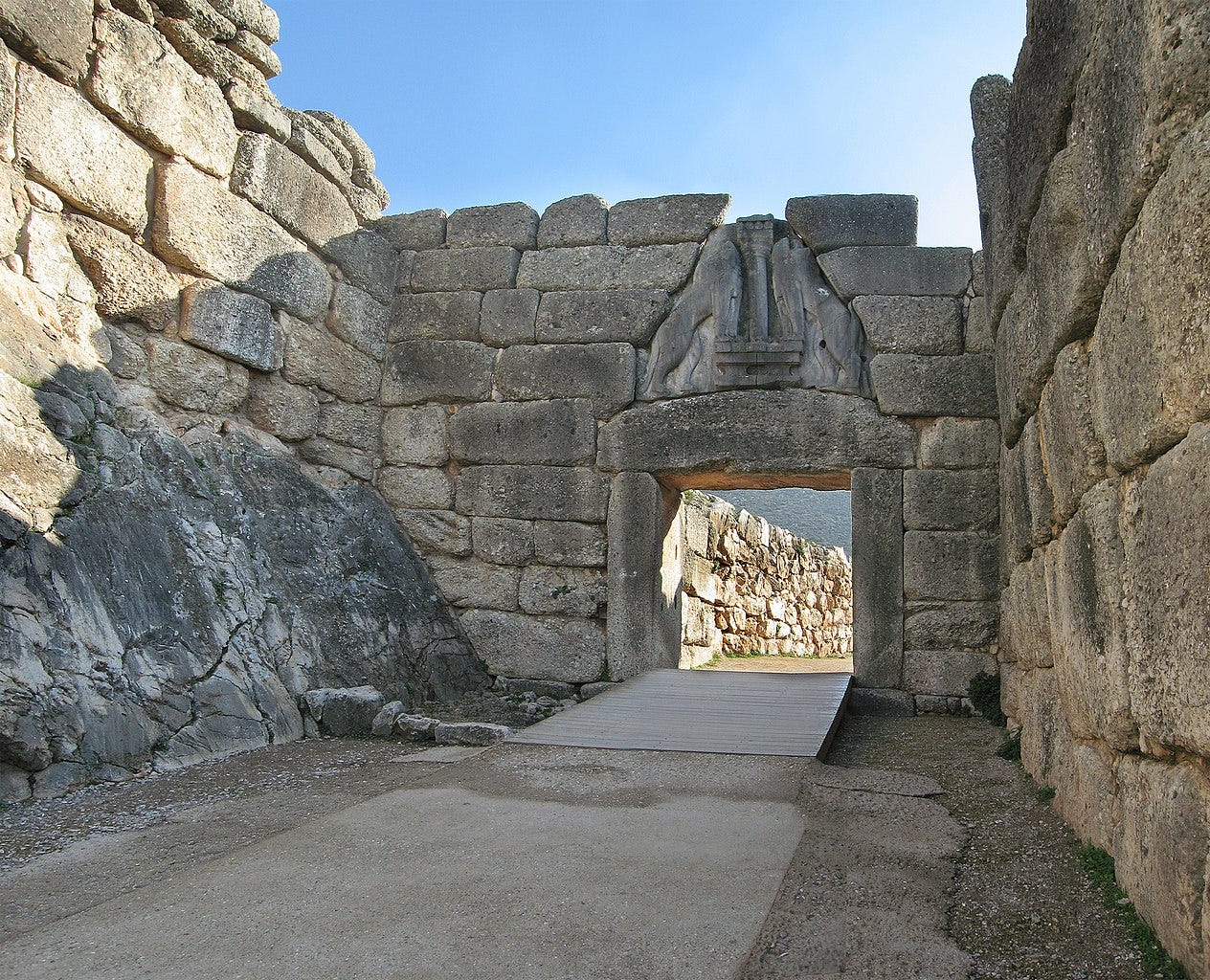
Dear Classical Wisdom Members, It’s certainly become a faux pas these days in certain circles to even say “the Dark Ages''. Brows are furrowed on behalf of the poor sods who endured plague, wars, famine and poor hygiene 900ish years ago. It certainly wasn’t an easy time to live... but did that make it so dark? And then what do we do with the other ‘dark’ periods? History doesn’t like straight lines, in either direction! So it’s not surprising that throughout the ages, throughout the world there are periods of ‘decline’... mysterious mute years in between bursts of progress. Are they also “dark”? Understanding these eras takes a bit more investigative work, for sure, but with an open and astute mind we can learn so much more about the peoples, places, and ideas that resulted in great and powerful civilizations. Today’s Member’s article does just that...We’ll explore the Bronze Age and the Dark Age and see what we can learn both from archeology and Homer’s epics... and whether they were or were not truly “dark”. But first, members, please note that TODAY, at Noon EST, we will have our Roundtable Discussion on the impact of Classics on James Joyce. Arguably the most difficult English language writer in the world to read... Joyce can seem impenetrable and intimidating... but actually, a good foundation in the Classics is literally the key to understanding. Our own Sean Kelly will illuminate the way, providing some key insights and observations to this literary giant and his most famous works. Absolute novices are also welcome! You don’t have to have read Joyce to participate. Make sure to join us here: I’ll actually be joining you live from Crete! I’ll have some more boots on ground videos, pictures and observations to share with you next week (including the disk of Phaistos and the palace of Phaistos!) So stay tuned... In the meantime, take a trip to the Age of Heroes below. All the best, Anya Leonard Founder and Director Classical Wisdom Not a Member? Make sure to register here to enjoy the full article below AND join us for the James Joyce conversation today. You can do so here: The Age of Heroes By Mary Naples Often recognized as the “Age of Heroes,” the Mycenaean civilization (1600 BCE-1100 BCE) was eternalized in the Homeric epics with indelible characters such as the imperious commander-in-chief “king of Men” Agamemnon, the “swift-footed” war hero Achilles, and the resplendent “queen among women” Helen herself. Though the personalities which represented them are part and parcel of the Western canon, the Mycenaeans themselves were famed for their engineering feats with ruins ranked among the wonders of the prehistoric world standing proudly to this day. Utilizing “Cyclopean” masonry—-so-called because only the mythical giant Cyclops race could weave the massive boulders together—the late Bronze Age powerhouse built robust reinforced bridges, massive fortification walls, and beehive-shaped tombs. While their building achievements are unmistakable, when it comes to extolling their other triumphs, the Mycenaeans are frustratingly mute. Though they had a writing system—-syllabic Linear B—- it was used chiefly for everyday record keeping and inventories in their heavily bureaucratic society. Alas, poetry was not among their talents given that this once-great civilization disappeared from the annals of history without recording its story. It was only in the eighth century BCE when Homer (or the poets known as Homer) put stylus to papyrus and recorded for posterity a time when giants roamed the earth side by side with the gods and the shining Mycenaean civilization was still dominant. Yet a space of nearly five hundred years separates Homer’s time from the last vestiges of the late Bronze Age powerhouse. Is it appropriate to assume that the Homeric epics were reflective of the Mycenaean era exclusively? Half a millennium—five hundred years—-is no small matter. It would be as if events in a hypothetical civilization of five hundred years ago could be accurately reported by historians living today...moreover, the majority of the five hundred years that followed the Mycenaeans is an era easily glossed over by historians, disparagingly known as the Greek Dark Age (1100-750 BCE). Up until recently, the Greek Dark Age has been an era that is largely dismissed by historians out of hand. But more and more, experts are calling into question this so-called blank slate — a time which would have been more recent to the memory of those living in the Archaic Period or the Iron Age of ancient Greece (750-480 BE) when the Homeric epics were composed. In fact, literary analysis conducted in the last hundred years has determined conclusively that Read more - Enlace a artículo - Más info en frasco@menadelpsicologia.com / Tfno. & WA 607725547 Centro MENADEL (Frasco Martín) Psicología Clínica y Tradicional en Mijas Pueblo #Psicologia #MenadelPsicologia #Clinica #Tradicional #MijasPueblo *No suscribimos necesariamente las opiniones o artículos aquí compartidos. No todo es lo que parece.



No hay comentarios:
Publicar un comentario